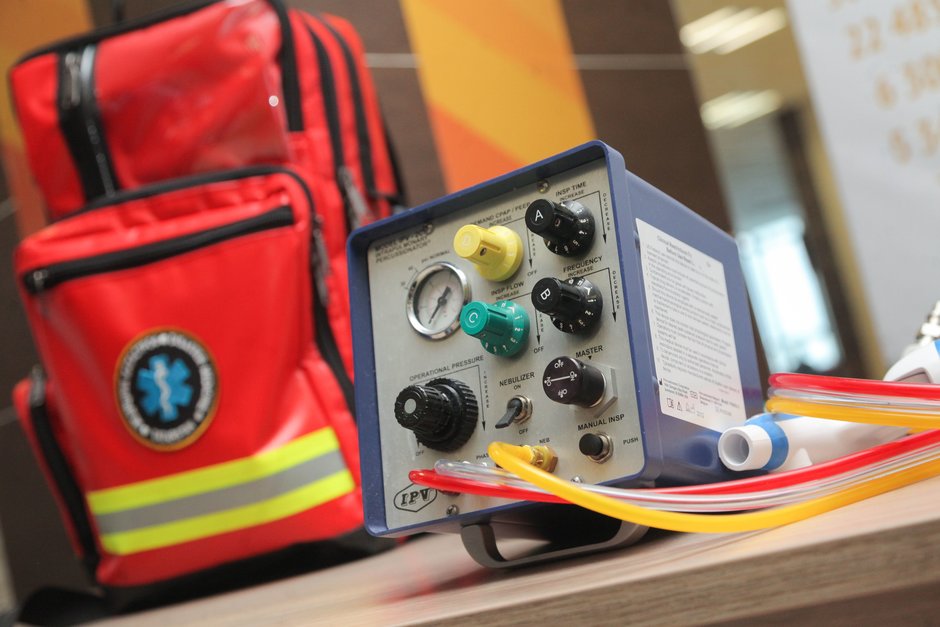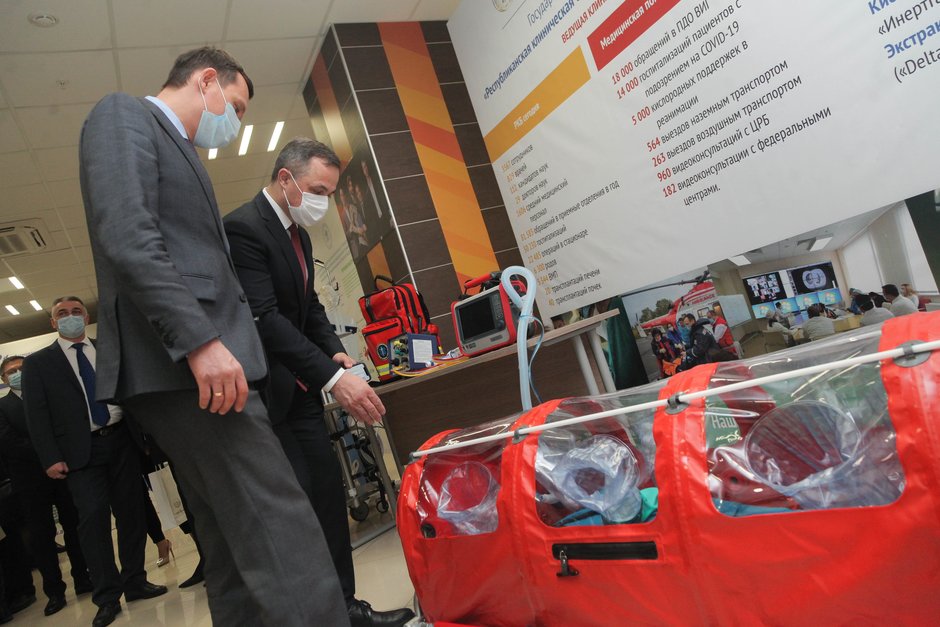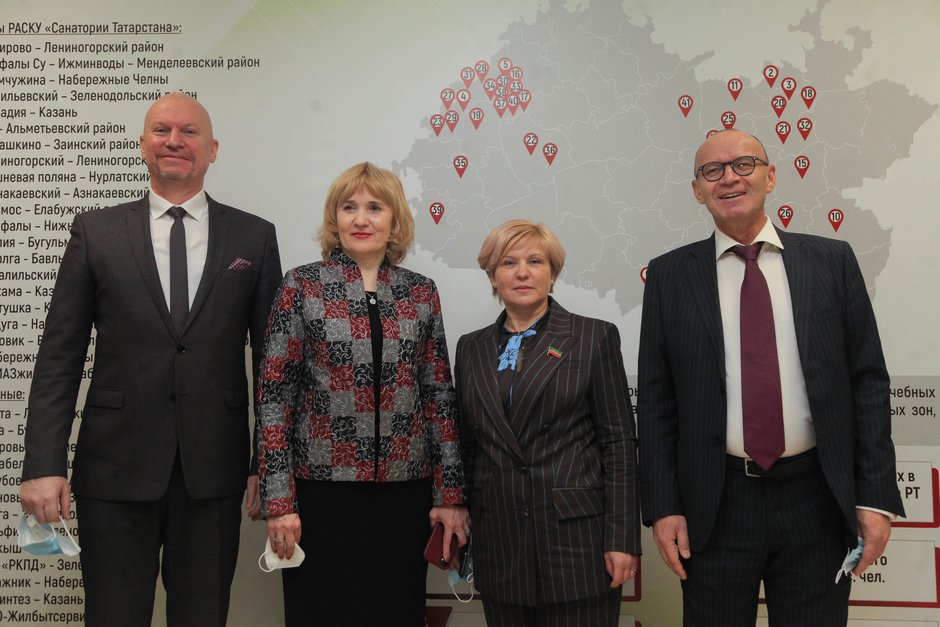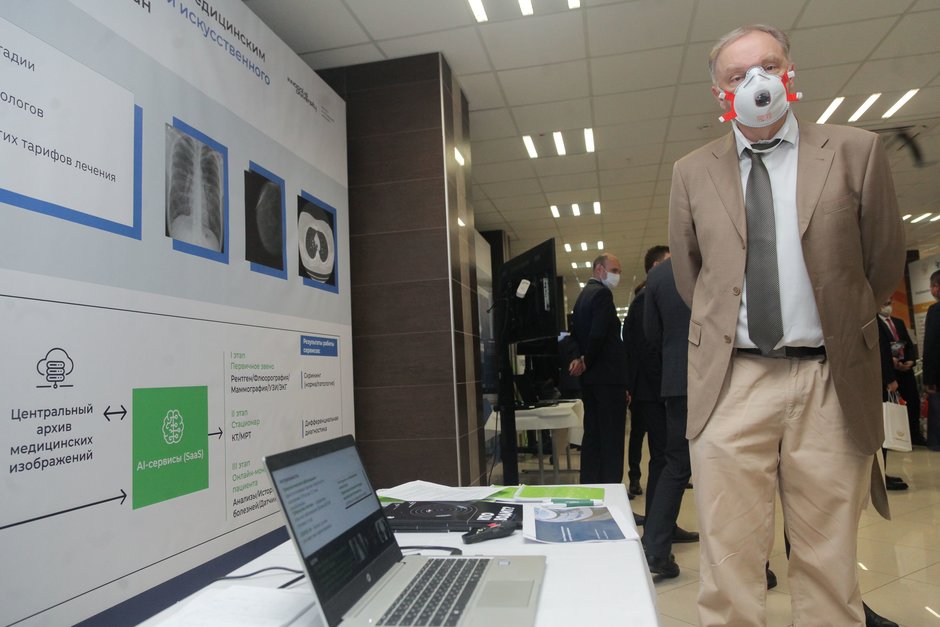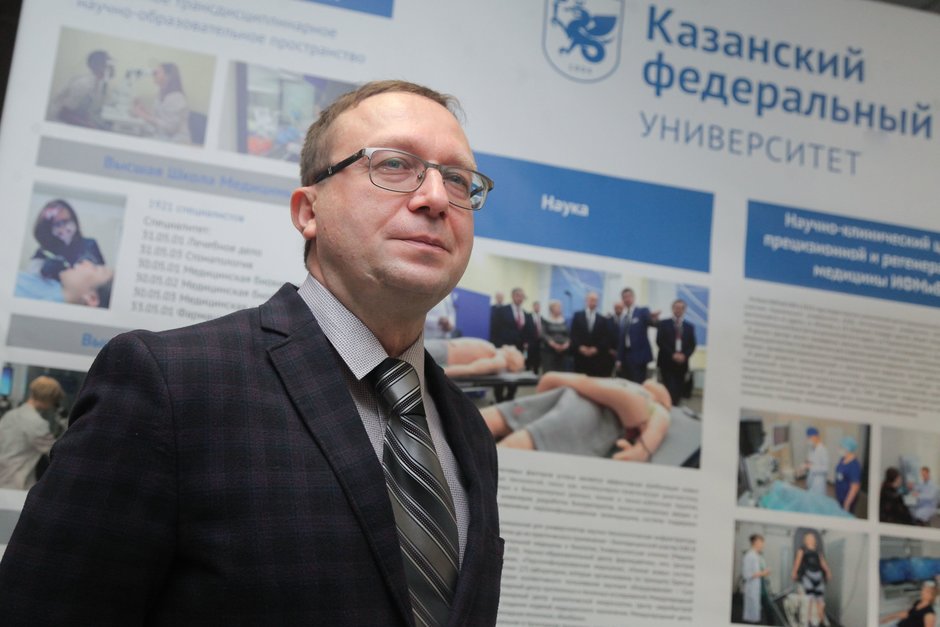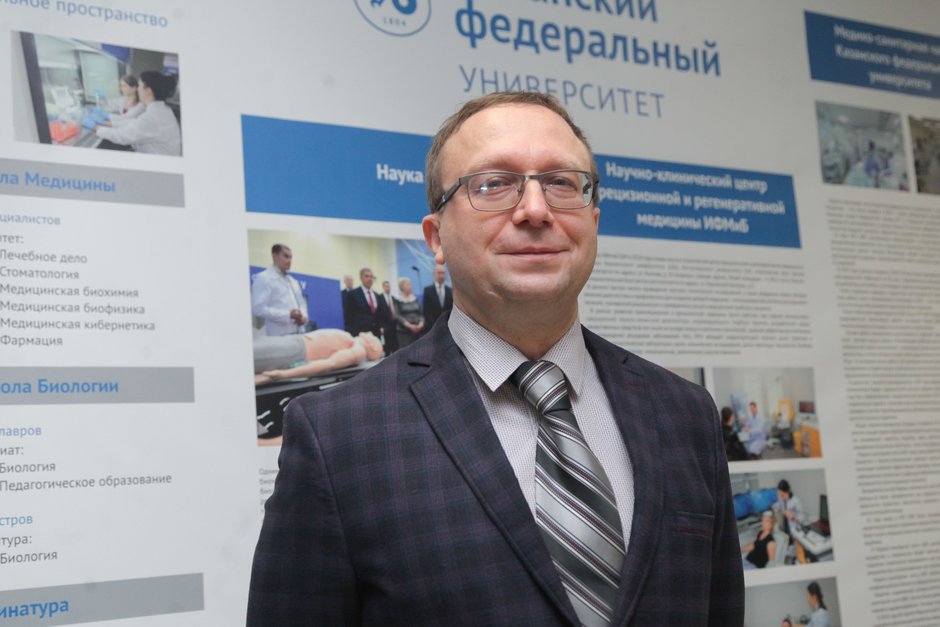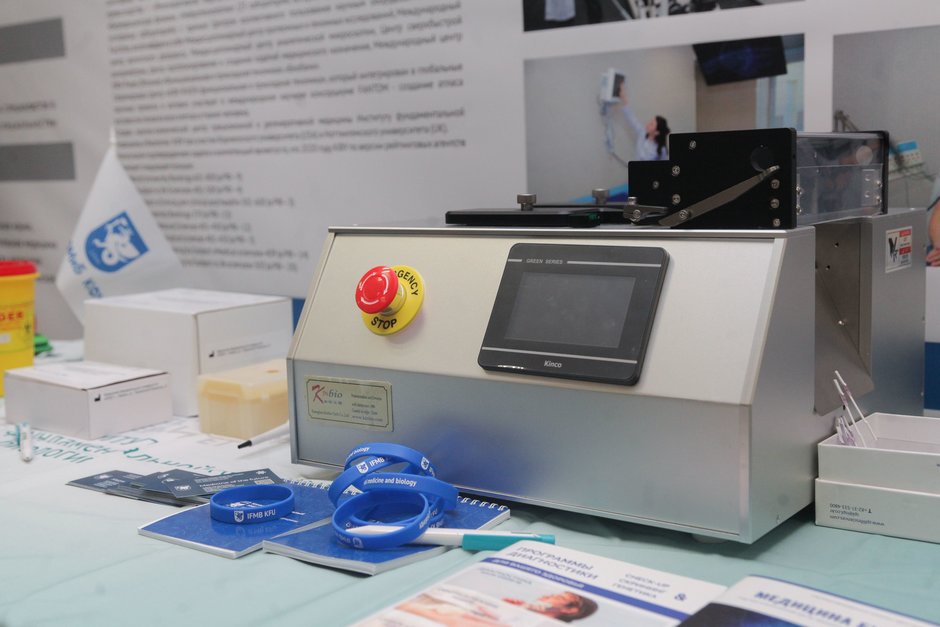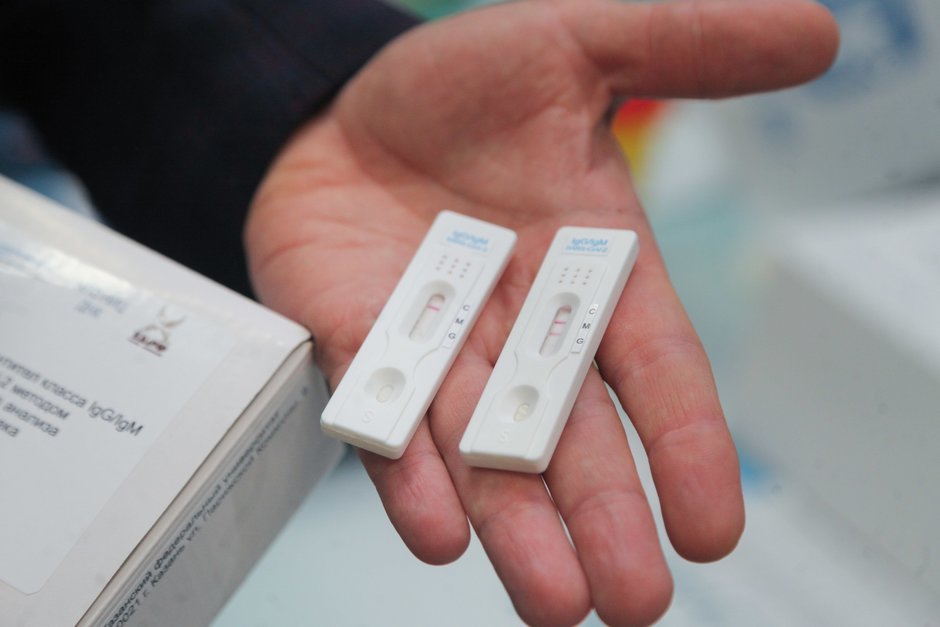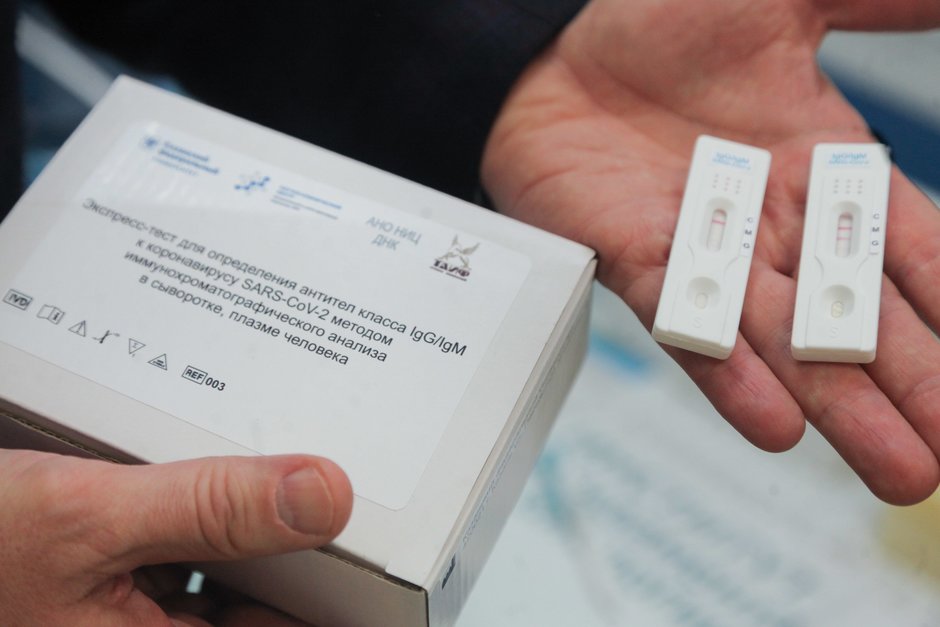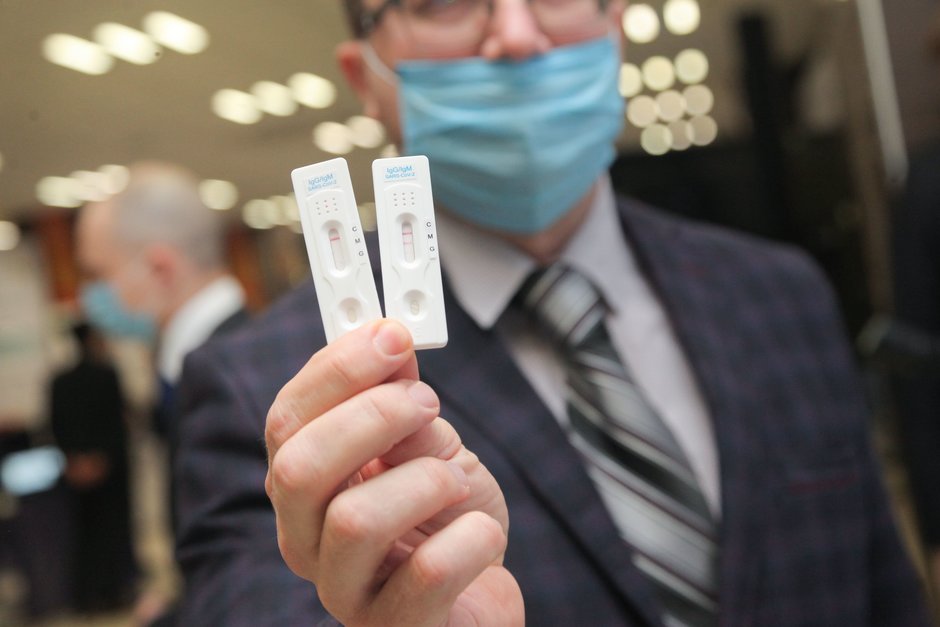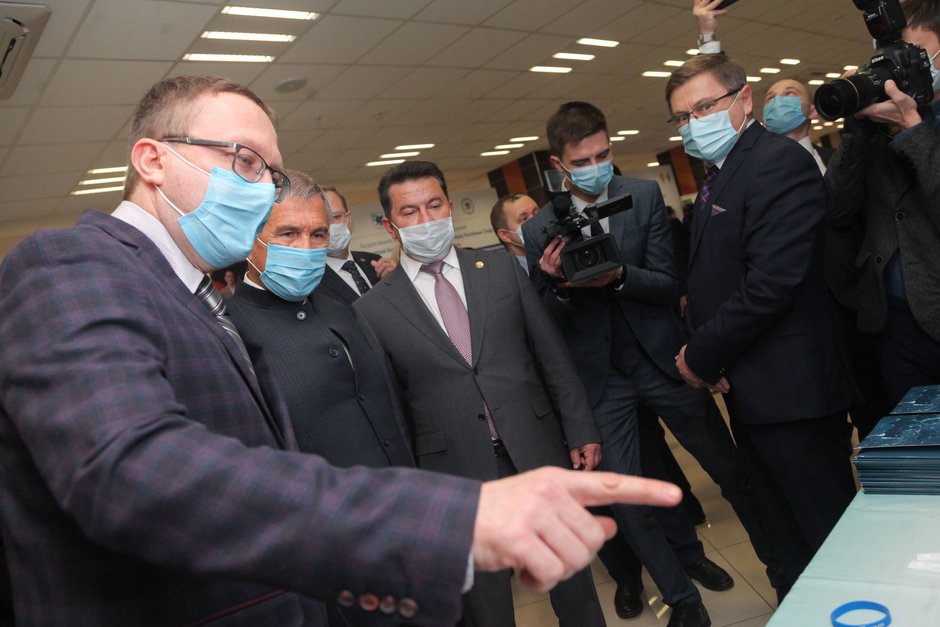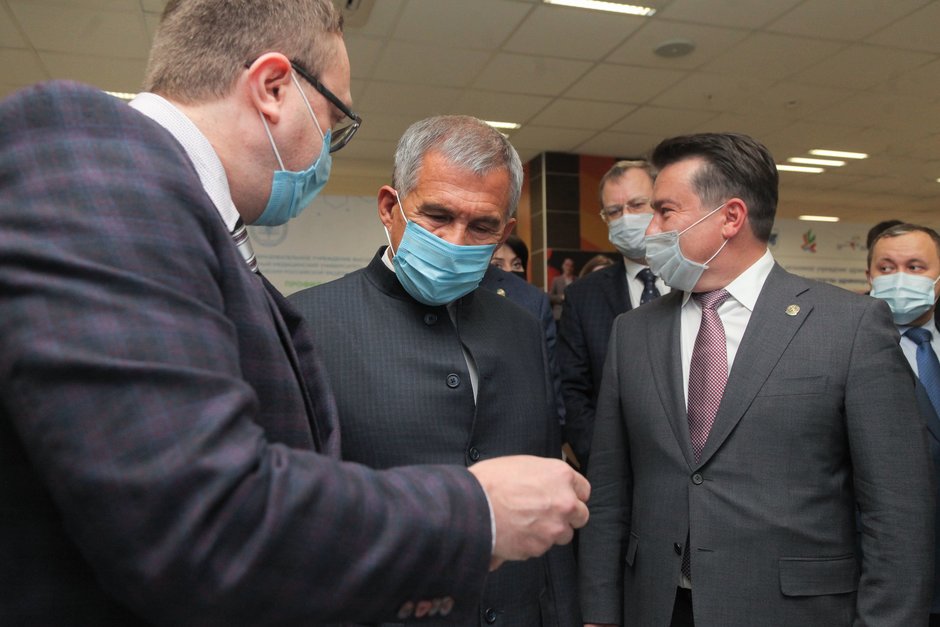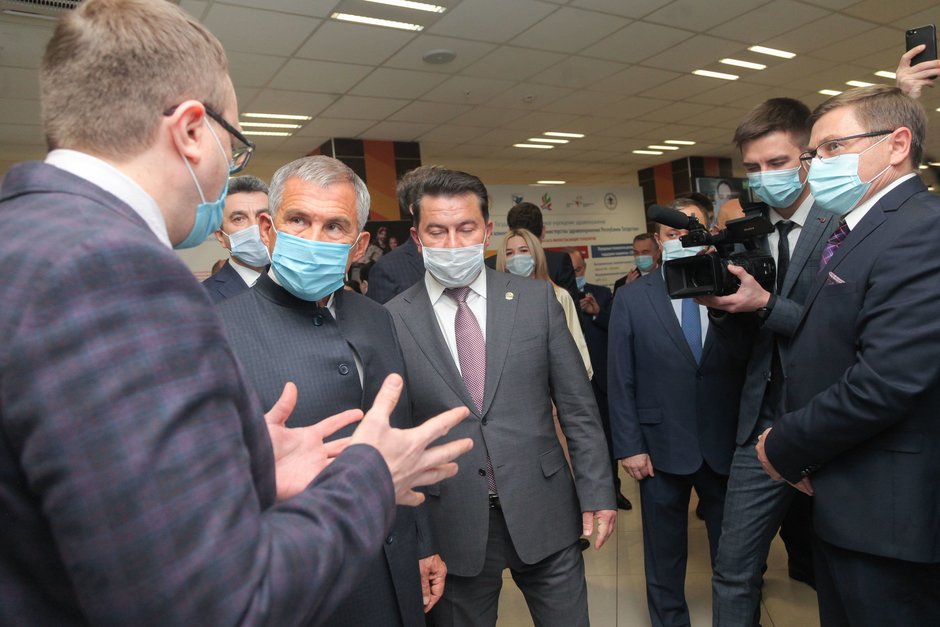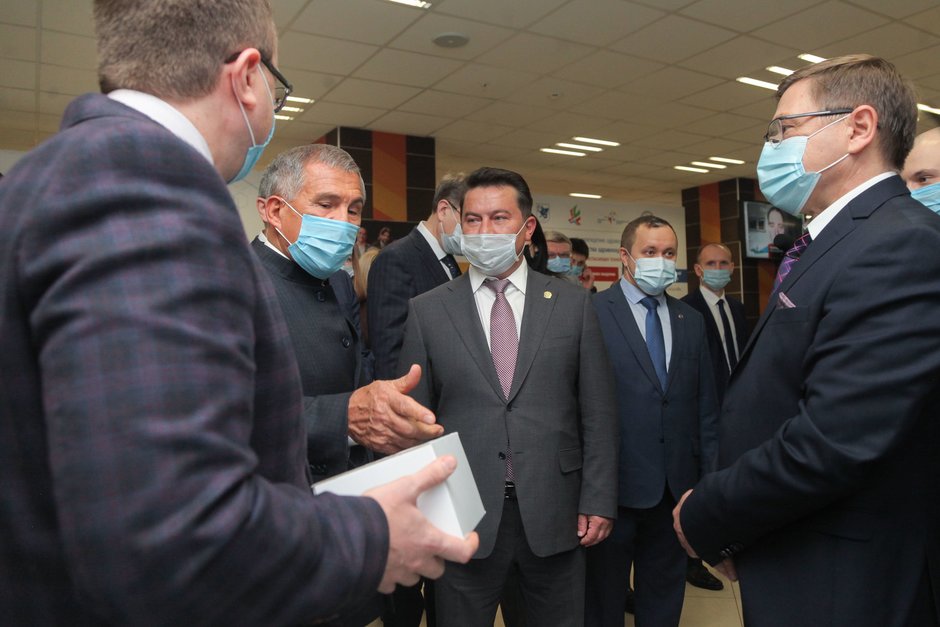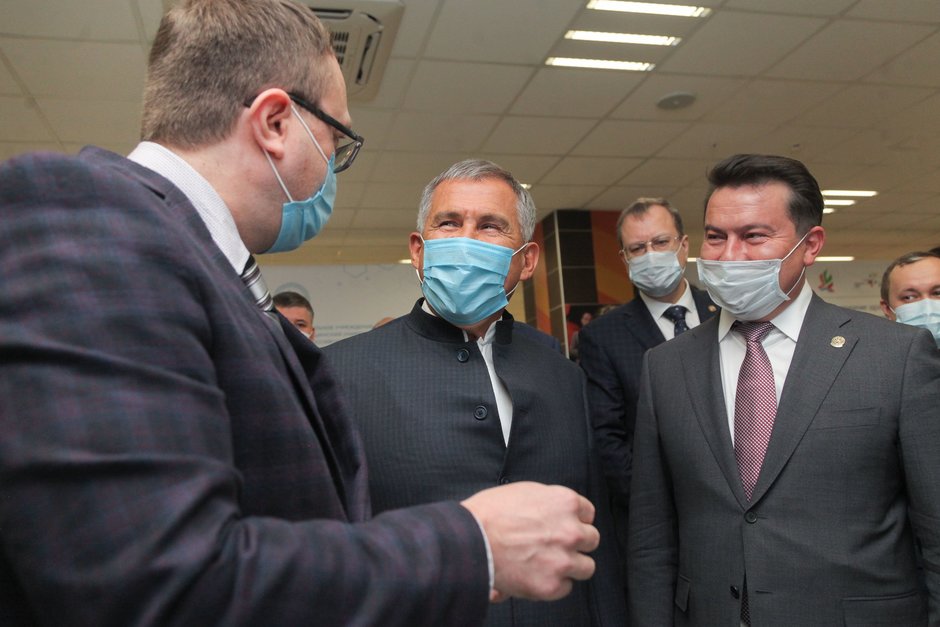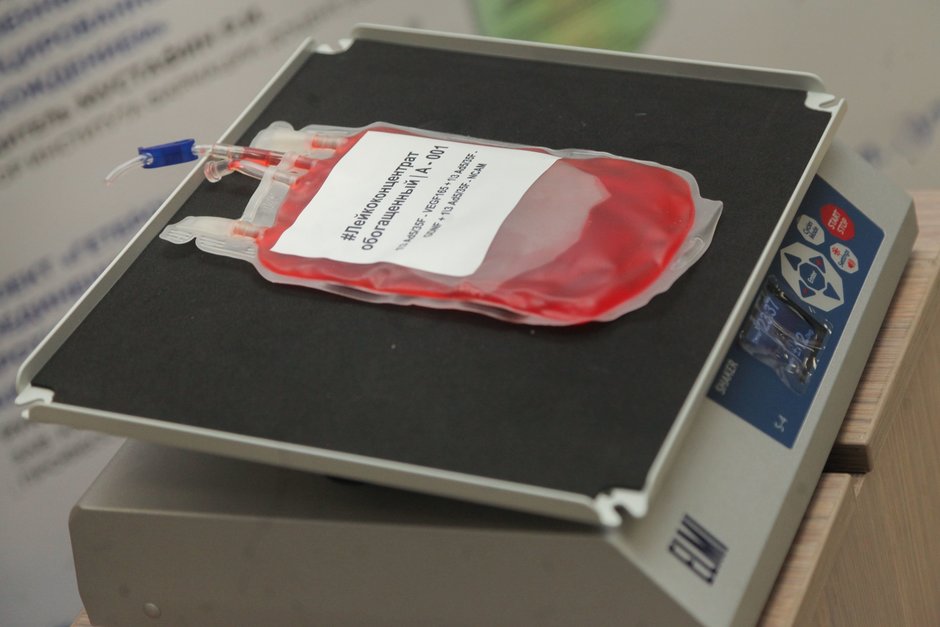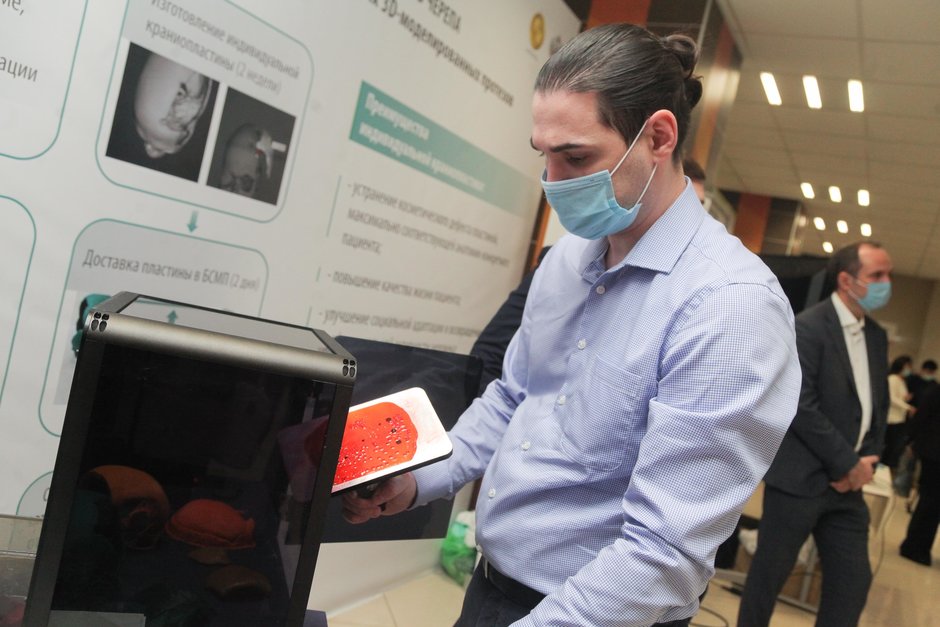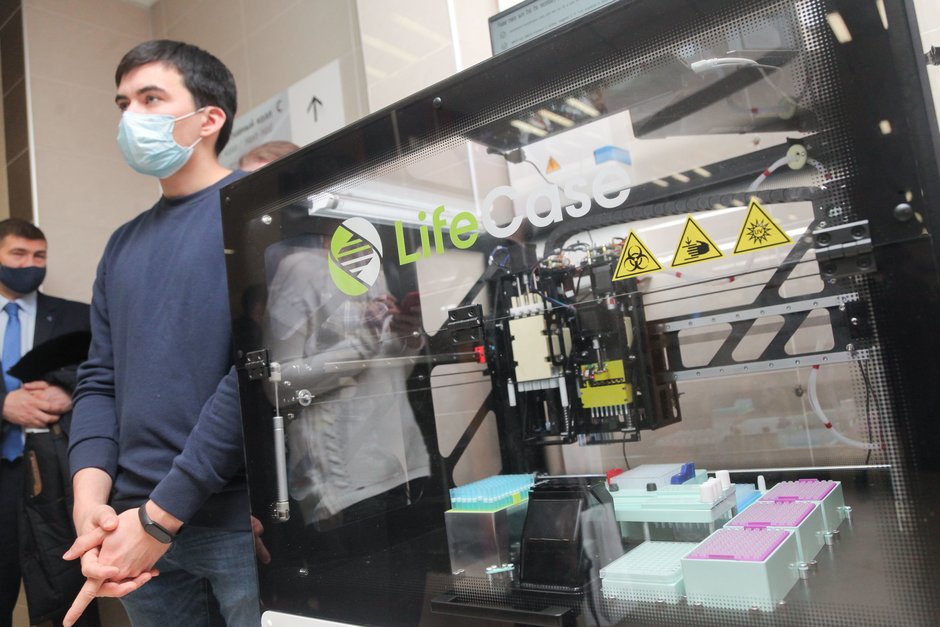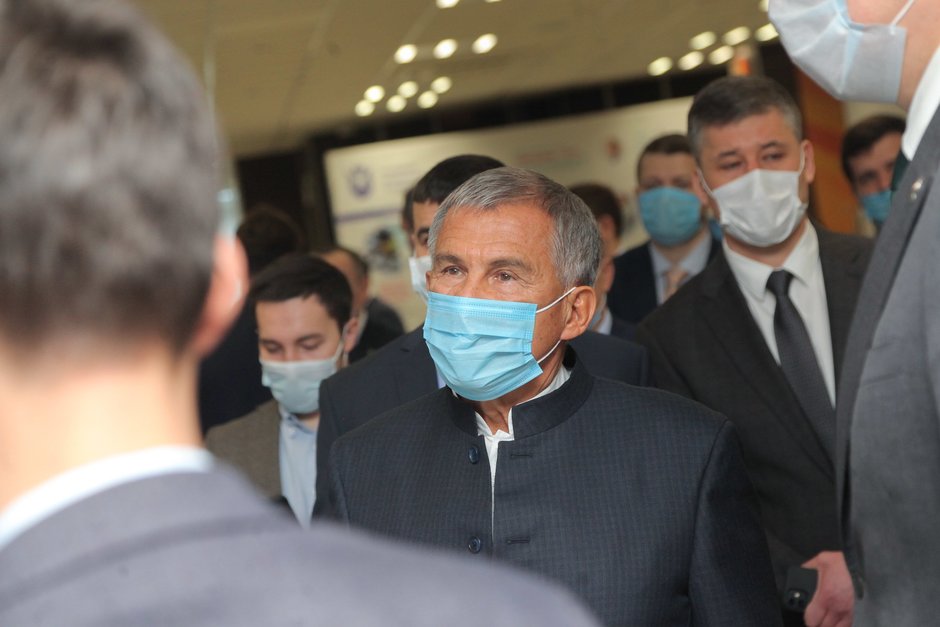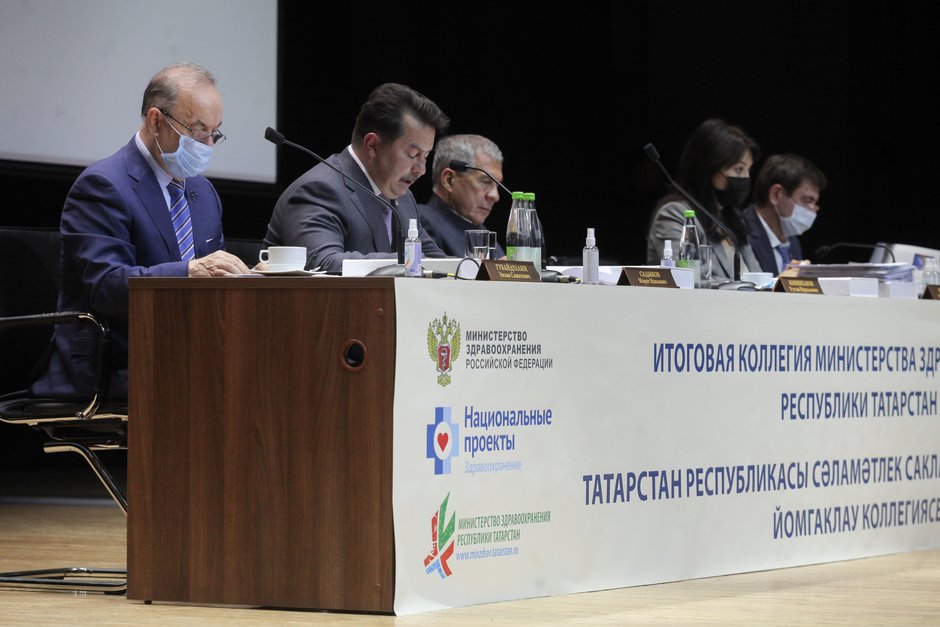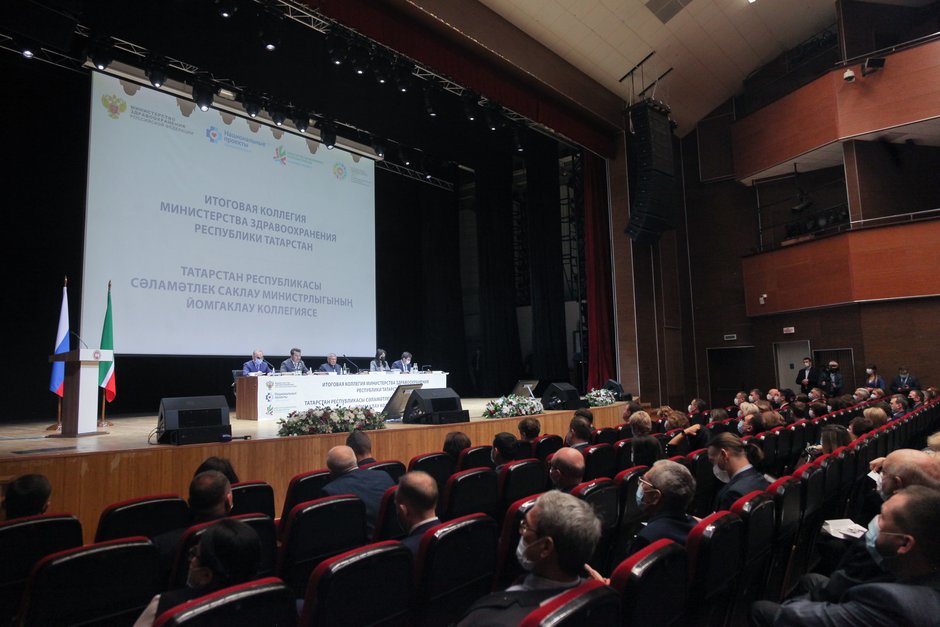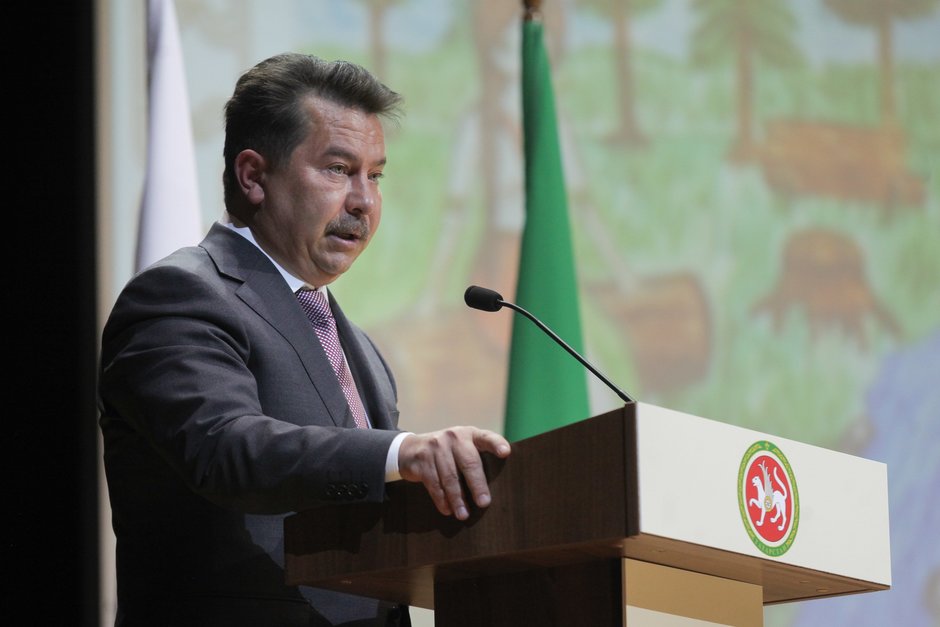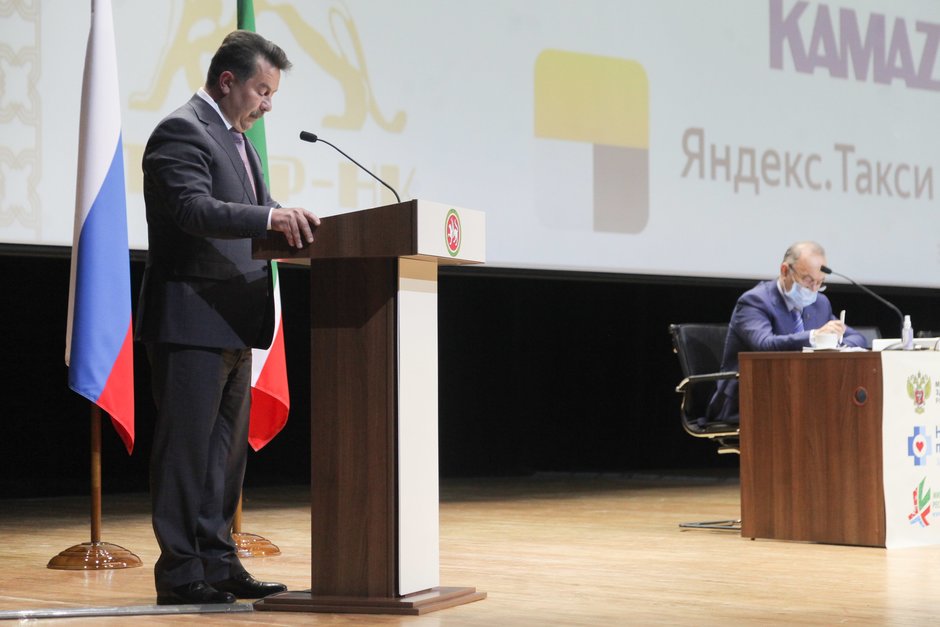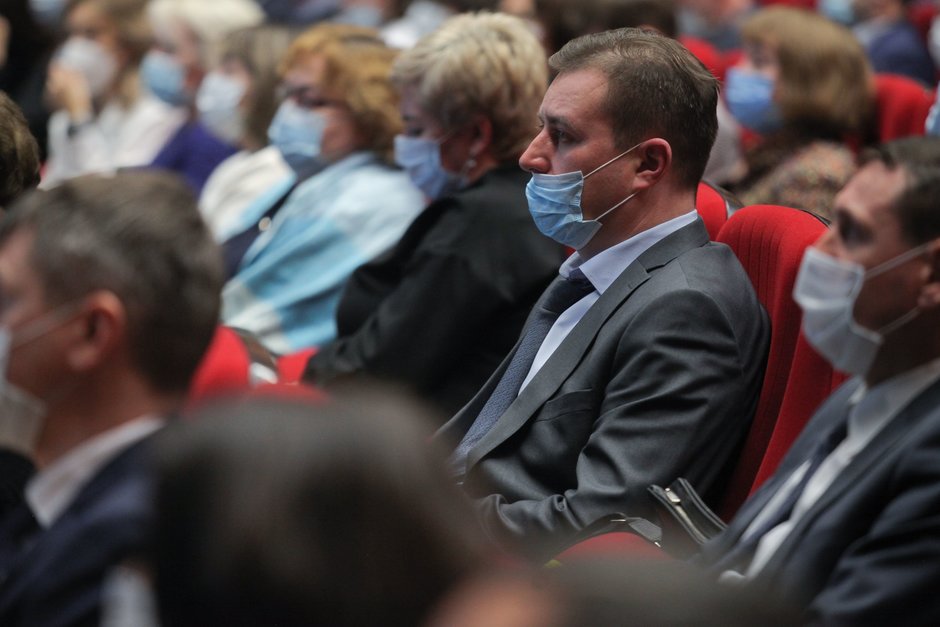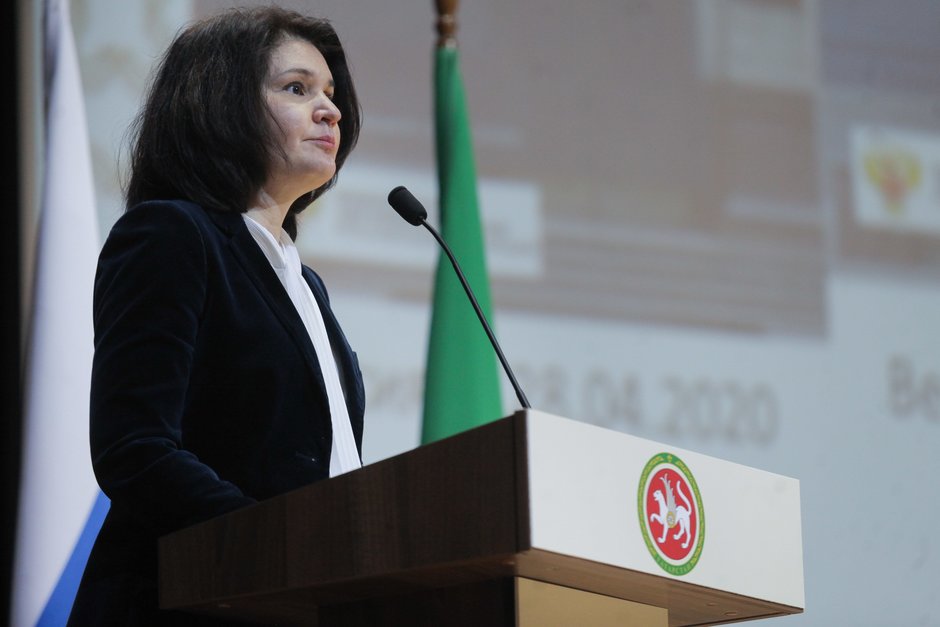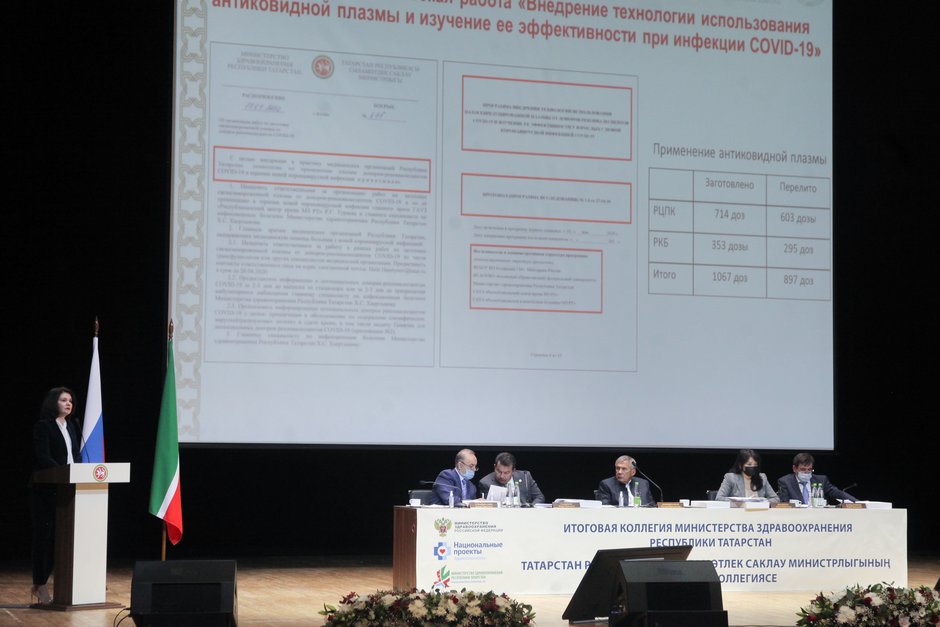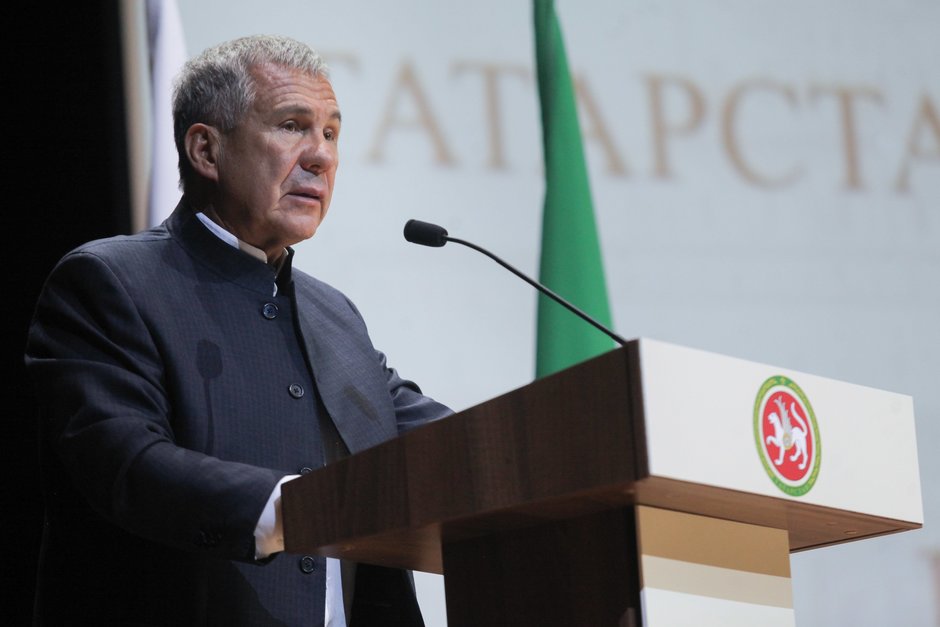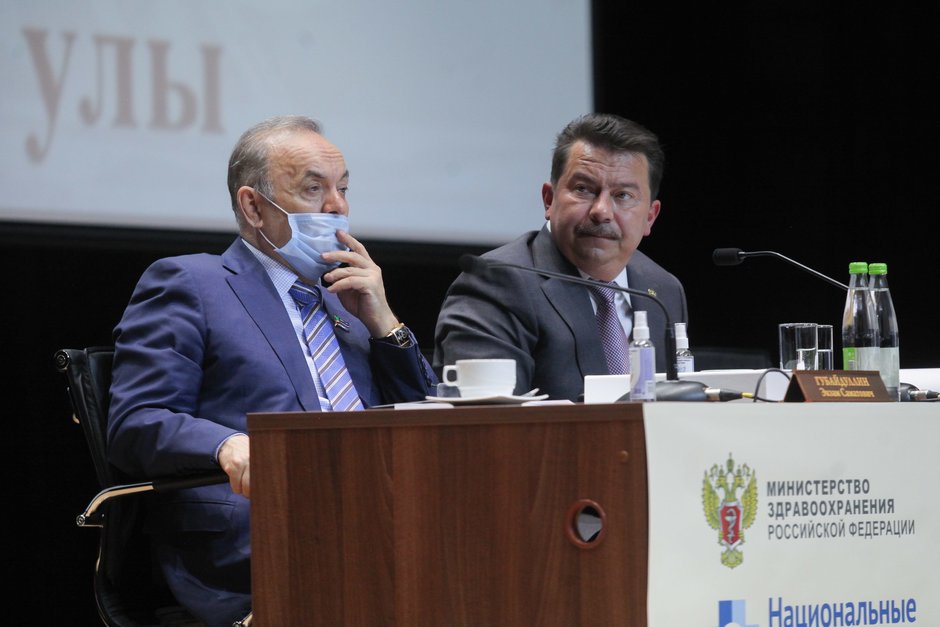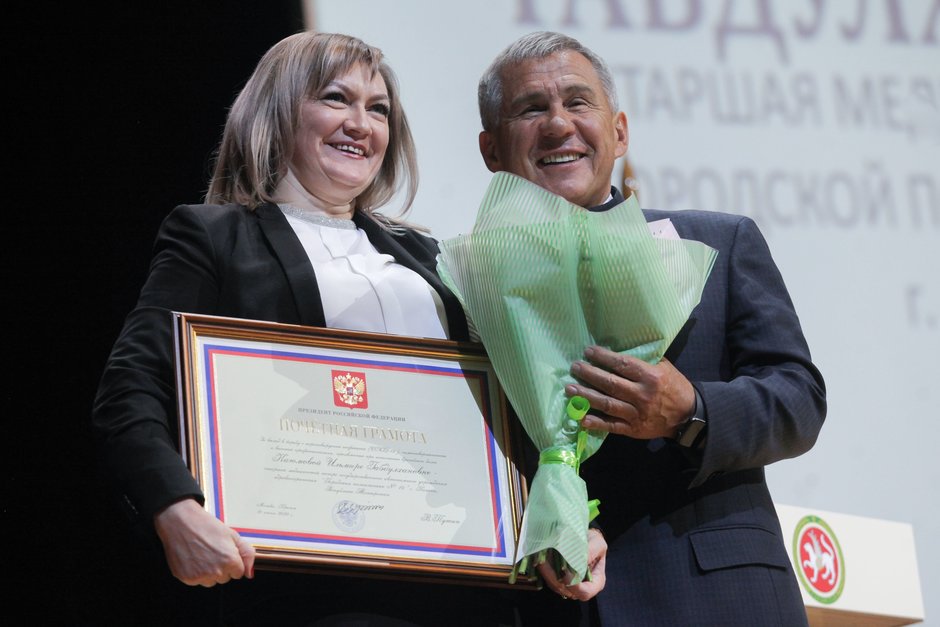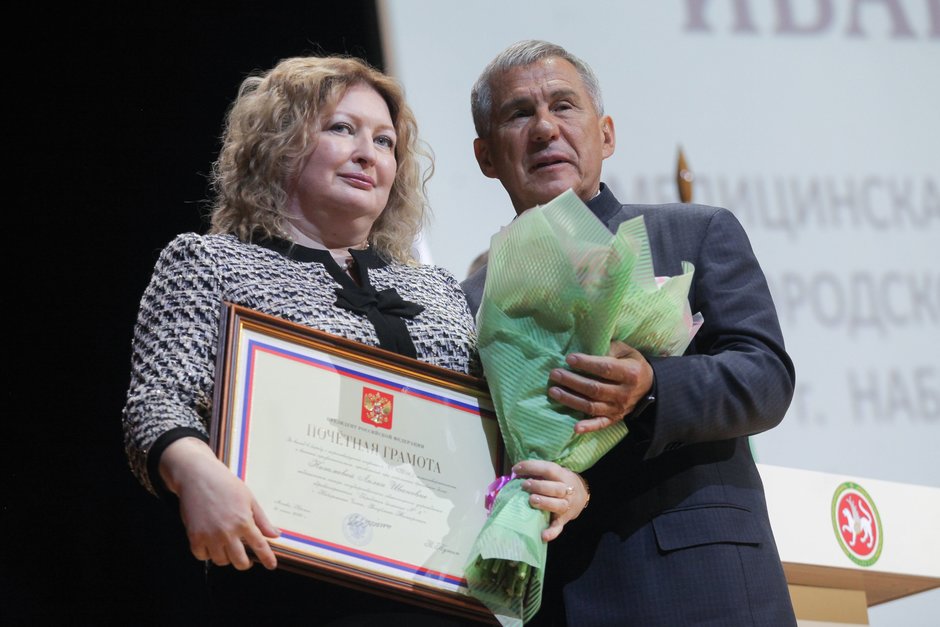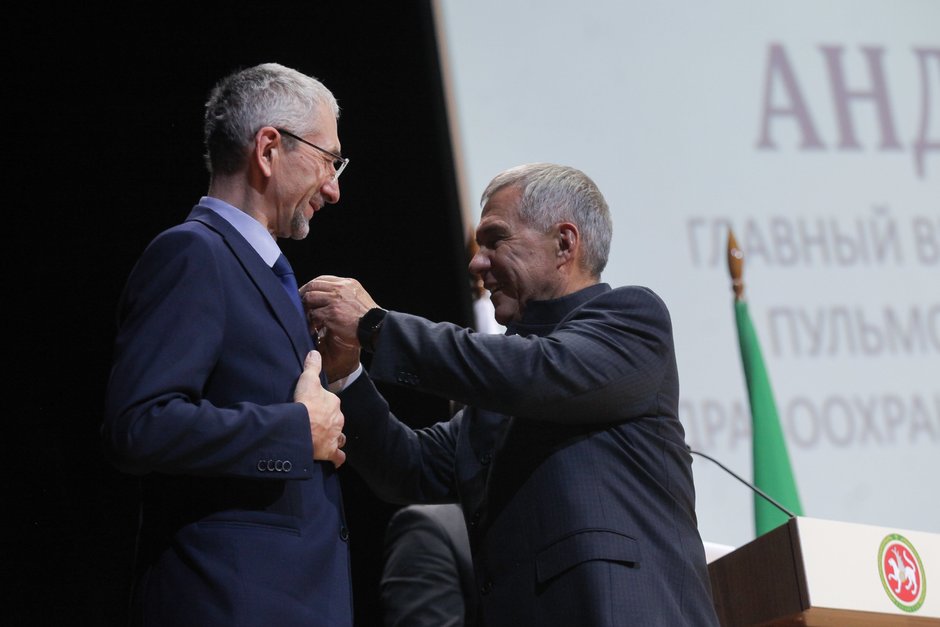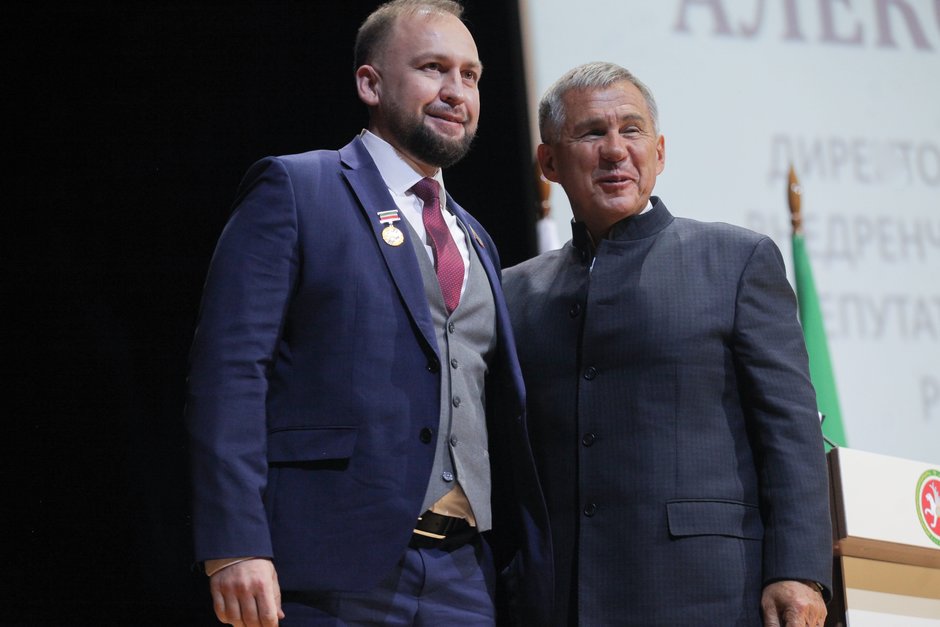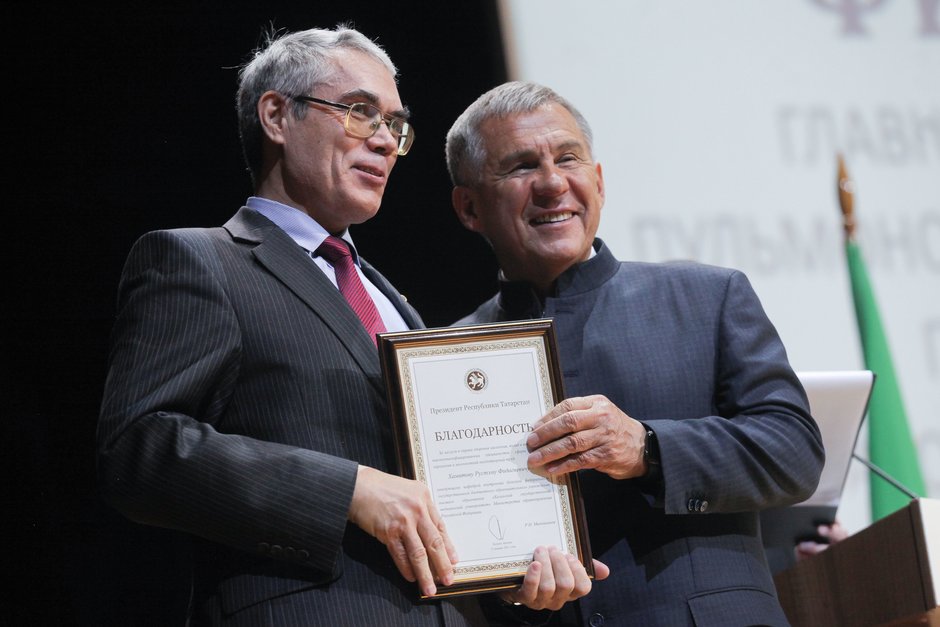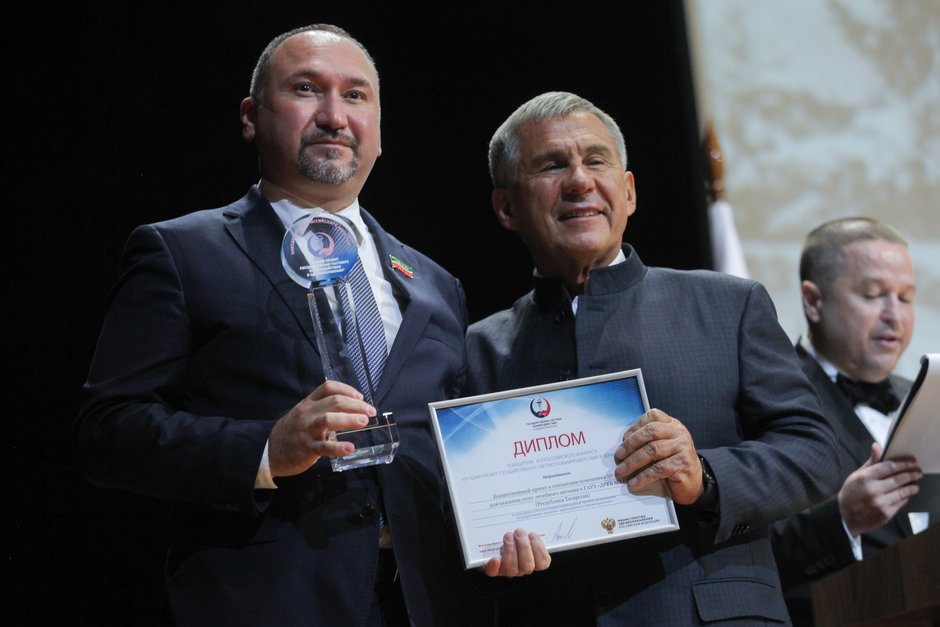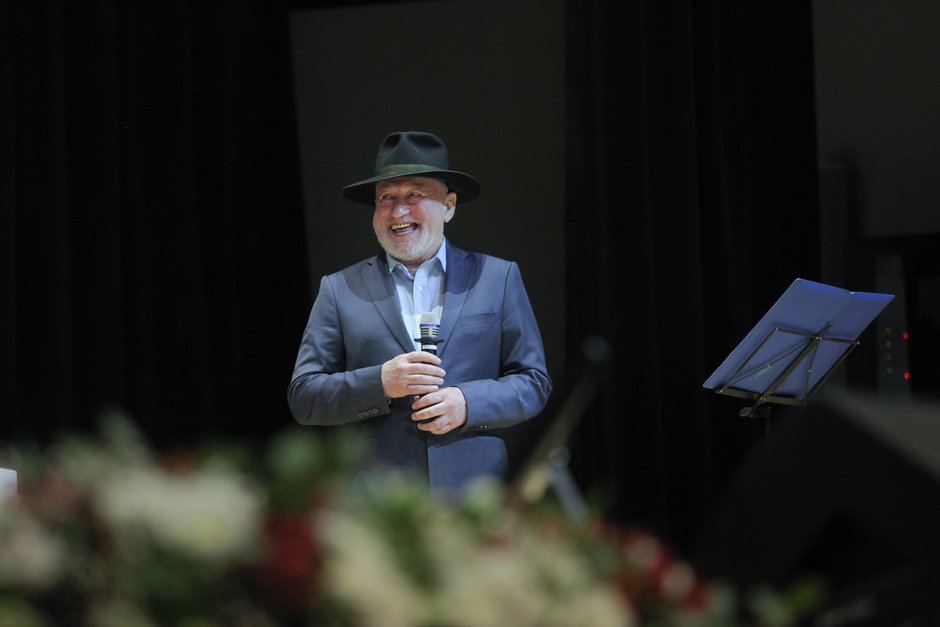Minnikhanov: “We are to vaccinate up to 1.5m people against coronavirus”
Tatarstan test system — universal “soldier”
The achievements of Tatarstan in the fight against the COVID-19 pandemic, objective reasons for an increase in mortality in the republic and a drop in cancer detection rates were discussed at the final board meeting of the republican ministry of healthcare on 25 January, held with the participation of Rustam Minnikhanov.
Before the meeting, the president of Tatarstan was presented with scientific developments of the Scientific and Clinical Centre for Precision and Regenerative Medicine at the Institute of Fundamental Medicine and Biology of the Kazan Federal University. Albert Rizvanov, the centre's director, corresponding member of Tatarstan Academy of Sciences, Professor, demonstrated to Rustam Minnikhanov the rapid test for detection of antibodies of class IgG/IgM for the SARS-CoV-2 coronavirus by immunoassay analysis in serum and human blood plasma and the reagent kit for the detection of IgG antibody titre for SARS-CoV-2 coronavirus by ELISA. He explained that these developments allow for high-quality and rapid additional medical tests to assess the potential risks and side effects of vaccination, as well as the effectiveness of the vaccination itself, by monitoring the level of antibodies (antibody titre) in the blood.
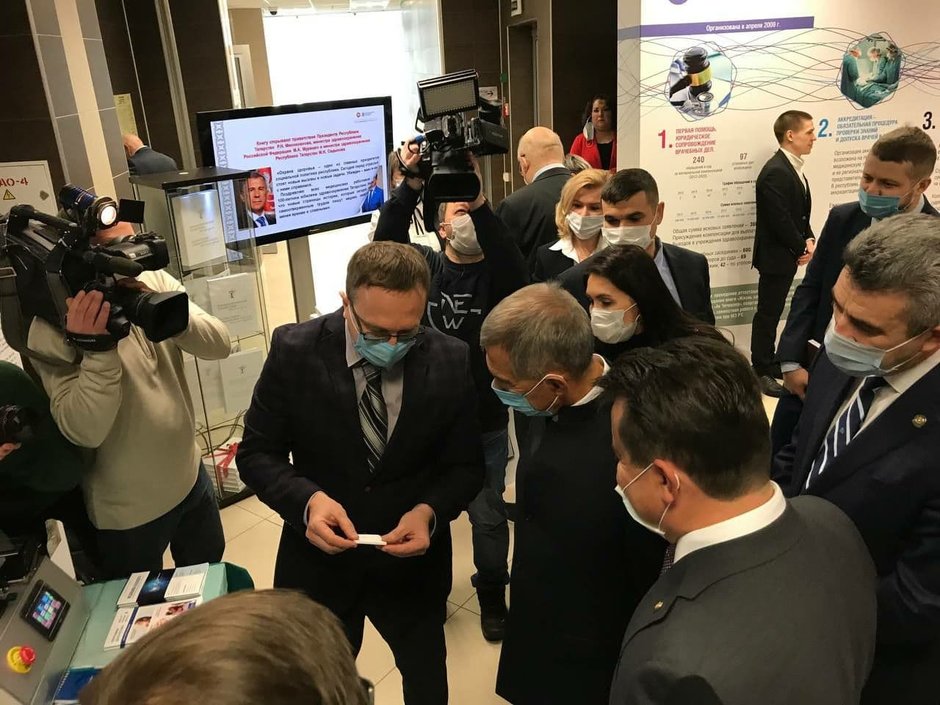
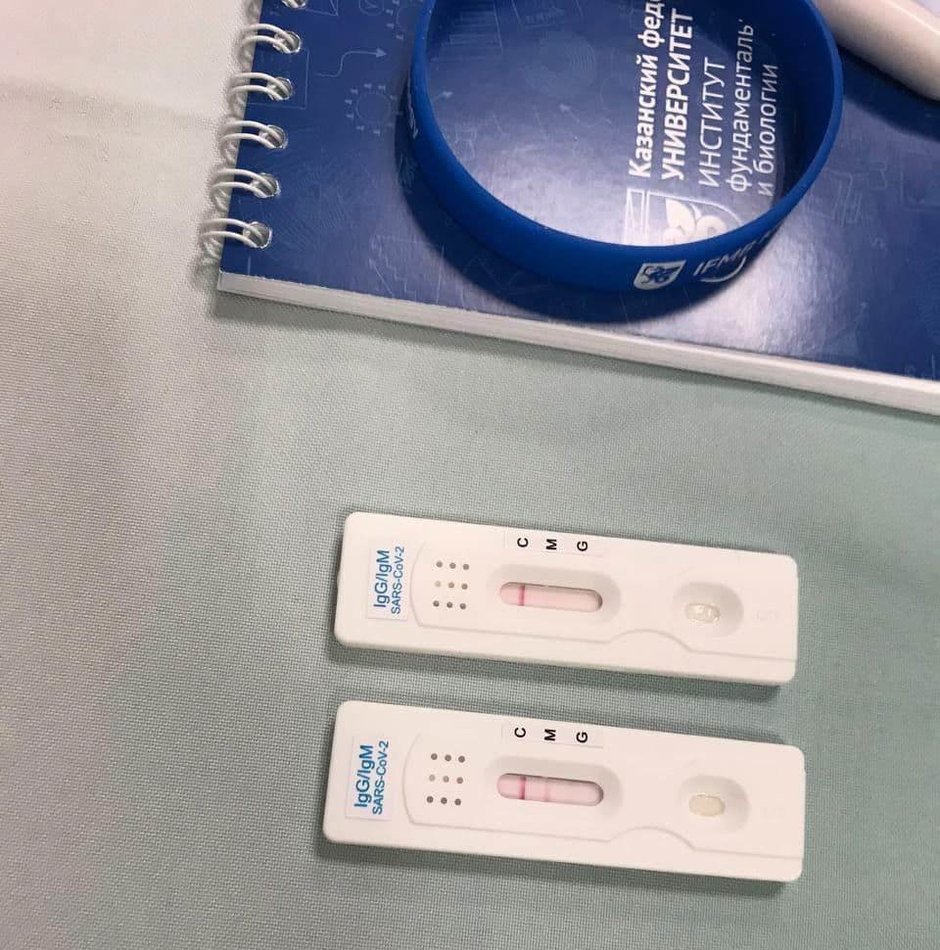
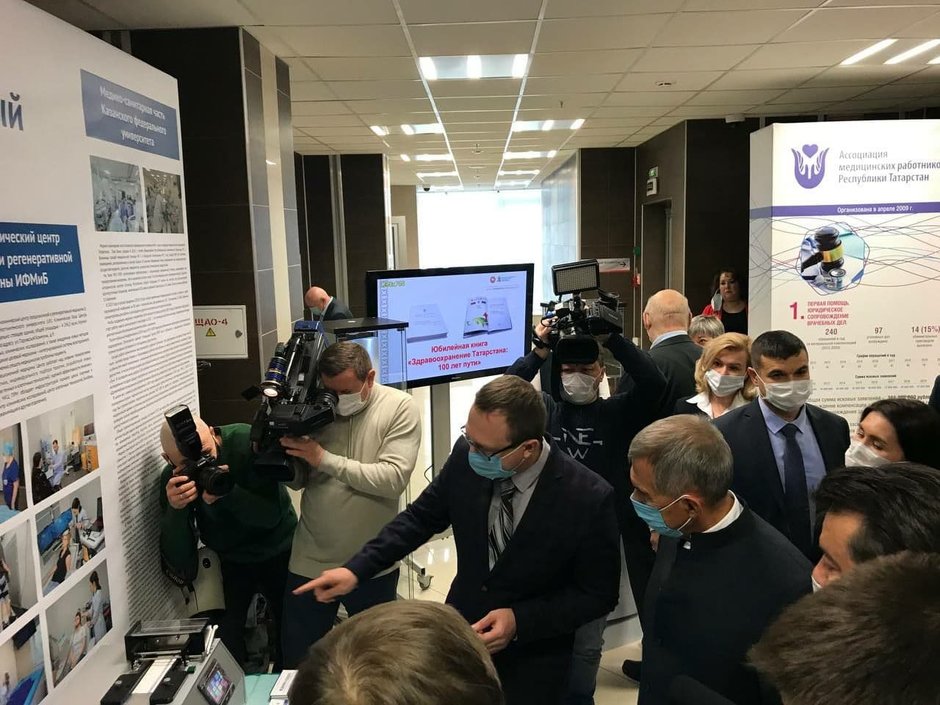
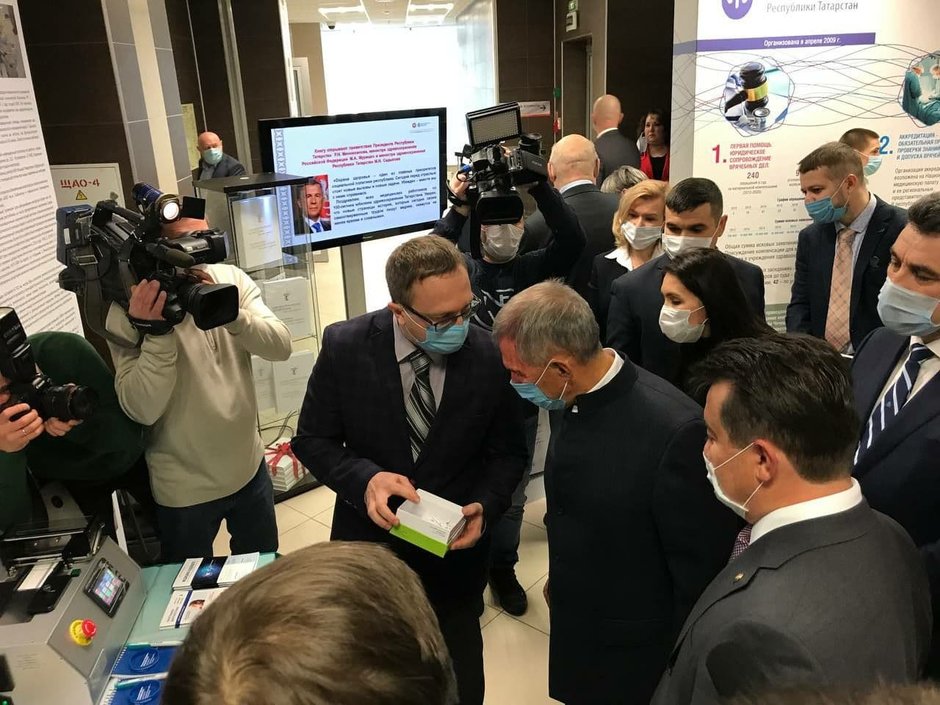
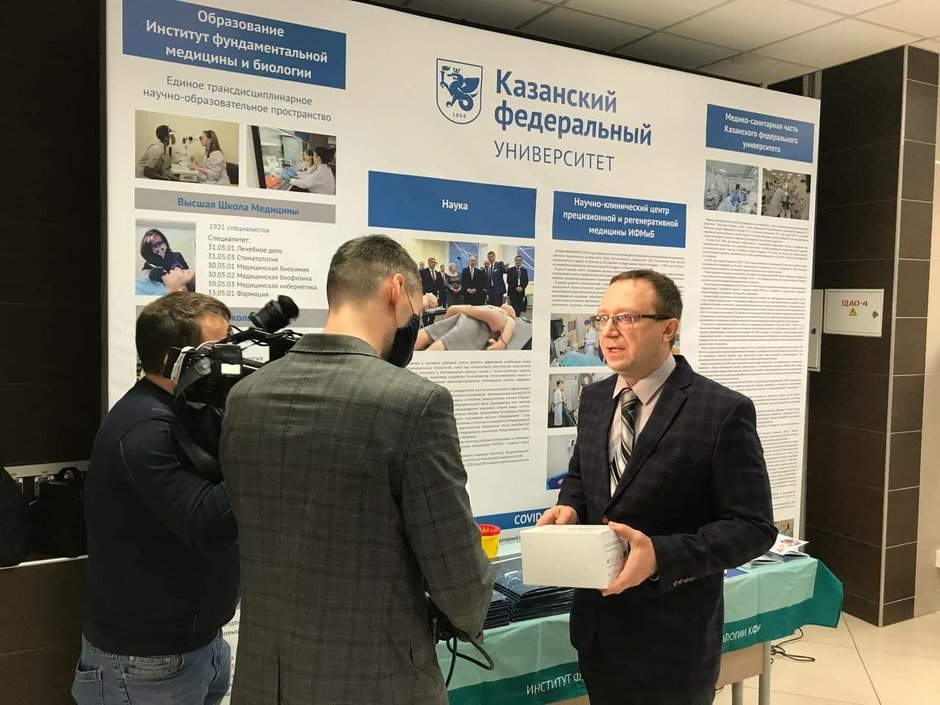
“Controlled vaccination is already available in our centre," Rizvanov told Realnoe Vremya. “We have already done a thousand classic tests — based on ELISA, for example, in more than 500 patients, we have determined the titre of antibodies so that their plasma can be used for the treatment of seriously ill patients. But we can't sell it because we don't have a registration certificate yet. We use this in the format of a research work. The permission of the Science Ethics Committee of the republic has been obtained. We are ready to use our COVID-19 expertise in other sectors of the national economy.”
According to the head of the centre, based on the existing developments, Tatarstan specialists will have the opportunity to develop new test systems for other purposes as soon as possible, for example, it is planned to use them to test patients for the presence of hemorrhagic fever with renal syndrome.
As for the registration and implementation of test systems in mass production,this will require additional funding, according to the interlocutor of Realnoe Vremya:
“A million for registration and a couple of million for the launch of mass production. The problem is that the market is now saturated, and therefore, it will be quite difficult for us to enter it without the support of the state. On the other hand, it is now a market economy. Perhaps, we just didn't have time in this pandemic. But we have accumulated competence and next time we will be in the forefront.”
The main investor in the centre's activities is TAIF Group, and in 2020, the amount of funds allocated by TAIF Group for this purpose amounted to about 0,5% of the annual budget of Tatarstan.
“Thank you for support”
“Joint and comprehensive work allowed us to maintain the situation in the republic without worsening the epidemiological situation," Healthcare Minister Marat Sadykov said at the beginning of the final report. “The entire system of medical care has been completely reformatted. I can tell you, in the first week we had problems with the provision of personal protective equipment, masks, and so on. All this caused dissatisfaction of both the residents of the republic and the medical staff.
According to him, business representatives helped to reverse the situation — Sadykov thanked TAIF, Tatneft, KAMAZ, Nefis Cosmetics, Azbuka Syra, and Yandex.Taxi and others for their support.
Marat Sadykov also reported on incentive and insurance payments to doctors: in 2020, they amounted to 3,9 billion rubles and 104 billion rubles, respectively (1,460 employees received them). The average salary in the industry, according to him, has increased by 14%. More than 220 million rubles were allocated from the Russian budget for the purchase of drugs for outpatient treatment of coronavirus patients:
“In January of this year alone, free medicines were delivered by volunteers to 7,500 patients," Sadykov added.
Death in the hinterlands
Marat Sadykov elaborated on the problem of increasing mortality in the republic:
“The redistribution of forces and resources, the mobilisation of personnel in the direction of the infectious diseases service could not but affect the demographic situation... As a result, the birth rate decreased (in 2019 — 11 per 1k population, in 2020 — 10,6) and life expectancy (in 2019 — 74 years, in 2020 — 72,6).”
According to him, the greatest increase in mortality rate was provided by three groups of people — by 13,3% it grew among the working population, by 24,8% — among seniors under 70, and by 28,2% — among those over 70. Among the causes of deaths, the first and second are still diseases of the circulatory system and oncology, but the third are the diseases of respiratory system, which in general were not included in the top five “deadliest”.
Deaths from gastrointestinal, neurological, and endocrinological diseases have also increased. One per cent of the total number died directly from pneumonia in 2019, in 2020 — 3,9%.
The plans to reduce mortality from acute cerebral circulatory disorders ended in failure — the indicators set in 2020 could not be achieved.
The ministry of healthcare of the republic considers an increase of share of older people, in particular — a 26 per cent increase in the number of inhabitants above working age over the last 20 years, and older than 80 years — by 34%, as a reason for the increase in mortality.
The top 7 districts with the highest increase in the number of deaths of people of working-age included the peripheral districts of the republic — Atninsky, Alkeevsky, Kaybitsky, Arsky, Kukmorsky, Tetyushsky, Aznakaevsky.
“It is possible to explain the increased mortality of older people but it is difficult to explain the increasing mortality of the working-age population," Sadykov said and instructed his first deputy Almira Abashevo and district curators “to analyse the situation and make suggestions”.
The death rates at home, which, according to the minister, reflect the level of availability of inpatient care and indicate the lack of primary care, have also increased.
“The high mortality rate, such as in Aznakaevsky, Yutazinsky, Muslyumovsky, Arsky, Tetyushsky districts, is just unacceptable! The chief doctors of hospitals will have to explain to me personally," Marat Sadykov was indignant.
Sadykov said that joint inspections of the republican and Russian ministries of healthcare, as well as Roszdravnadzor, revealed a number of problems that “significantly affect mortality rates”. Among them, as follows from the slides shown at the board meeting, there are insufficient analytical work and negligence of pathologists in coding the causes of death. The ministry developed a comprehensive plan to reduce mortality in Tatarstan. It gives priority to primary and secondary prevention of diseases.
Oncology has not been affected by coronavirus
Strange but true: the conversion of almost all primary care medical complex to fight the pandemic and coronavirus and the cancellation of medical checkup have had virtually no impact on the effectiveness of diagnosis, treatment and prevention of cancer.
“The death rate has decreased compared to 2019, and it is particularly gratifying to note a decrease in mortality from malignant neoplasms among the working-age population by 5,8% compared to 2019," Ilgiz Khidiyatov, the chief physician of the Republican Oncology Dispensary, said in his speech. “By the rest of the most important indicators of the project, the target levels have also been achieved: in particular, the share of diseases detected at early stages amounted to 61,1%, the one-year mortality rate of patients, compared to last year, has decreased by 6,4% and reached the target level of 23,3%, and the value of the proportion of patients with neoplasms registered for 5 years or more amounted to 58,9%, which is higher than the target level for 2020.”
The number of patients treated in the oncological dispensary, compared to 2019, has increased by 5,900 cases, the number of chemotherapy sessions — by 20%, and the death rate of the working-age population from cancer has decreased by 5,8%. The share of oncological diseases detected in the early stages (I and II) has also increased — by 0,8%, that is, it exactly corresponds to the planned for 2020 — 61,1%. Ilgiz Khidiyatov explained the successes by huge financial injections.
Debts for medical checkups and vaccination tasks
Rustam Minnikhanov began his traditional speech at the board meeting with the expression of gratitude to the doctors and all departments involved in the fight against the spread of coronavirus.
“The budget [of the health care system of the republic] is over 89 billion rubles, an additional 2,6 billion was allocated to fight the infection," he recalled, but he also noted negative factors: “The year 2019 was the most significant year for us in terms of mortality... The decrease in the volume of planned medical care, the suspension of medical checkups of the population negatively affected the health of the population. We are back to the results of 2003. We were not ready for new challenges.
The president of Tatarstan noted that at the end of the year, within the framework of the Healthcare national project, the republic failed to achieve a number of planned indicators, including reducing mortality. He asked to analyse the situation and take appropriate measures, called for the correct use of the bed fund and personnel.
Rustam Minnikhanov now sees the implementation of the large-scale vaccination against coronavirus that has begun as the main task:
“It is not an easy task to vaccinate up to one and a half million people. Now we have 10,000 people vaccinated, but here it is one and a half million!”
As a plus, which will help to cope with this task, he called “a clear coordinated work of the health care system”.
And the most important thing, he reminded, is that patients do not relax after the injection: we need to tell people that the vaccination will “work” only in two months, that the antibodies may disappear after some time.
“This year, the ministry of healthcare needs to strengthen its work to increase the availability of medicine and cover the population with preventive measures," the president reminded about the “debt” formed during the period of self-isolation, 'to ensure timely medical checkups... Last year, with the plan of medical checkup of 677,000 people and the preventive examination of 173,000 people, we carried out only half... In the current year, it is necessary to organise everything and achieve the established indicators. The plan is 715,000, as for occupational health examinations, it is necessary to pay attention to the residents of remote villages and settlements.”
In this regard, Rustam Minnikhanov proposed to expand the work of mobile medical complexes in rural areas, as well as to involve them in vaccination, which, in his opinion, should be accompanied by active awareness-raising work, including through the media:
“To tell, to show, to convince! This is a huge cost for everyone, including labour resources, but we must go this way.”
Besides, the ministry of healthcare of the republic should continue to work on providing the industry with personnel, eliminating the personnel deficit in the primary level.
“This applies primarily to the Leninogorsk, Aksubaevsky, Spassky and Zainsky districts! Here, both the heads and the healthcare service should be aimed at attracting not only young but also experienced personnel. There are a lot of people who want to move to the Republic of Tatarstan — we need to solve housing issues!”

